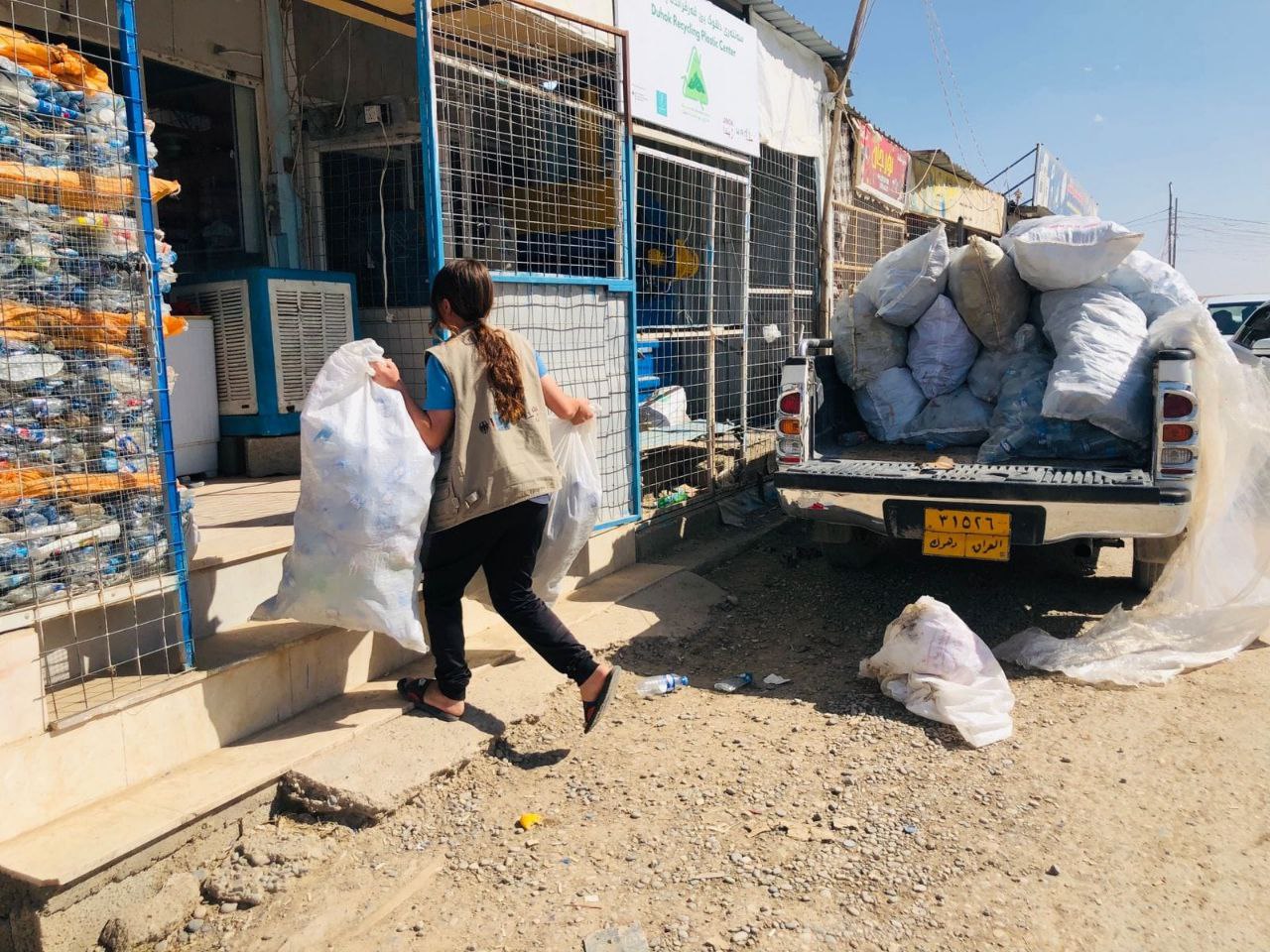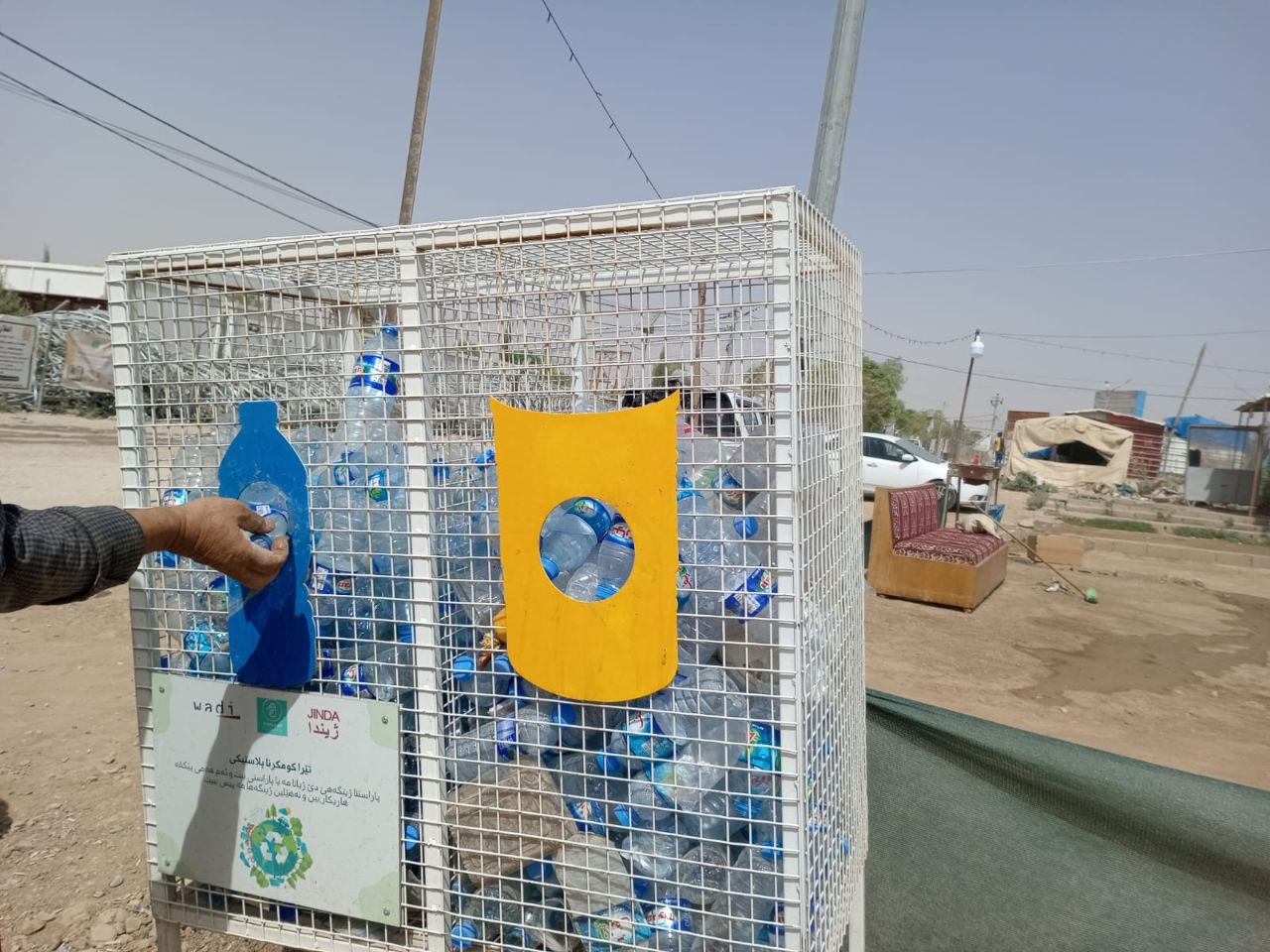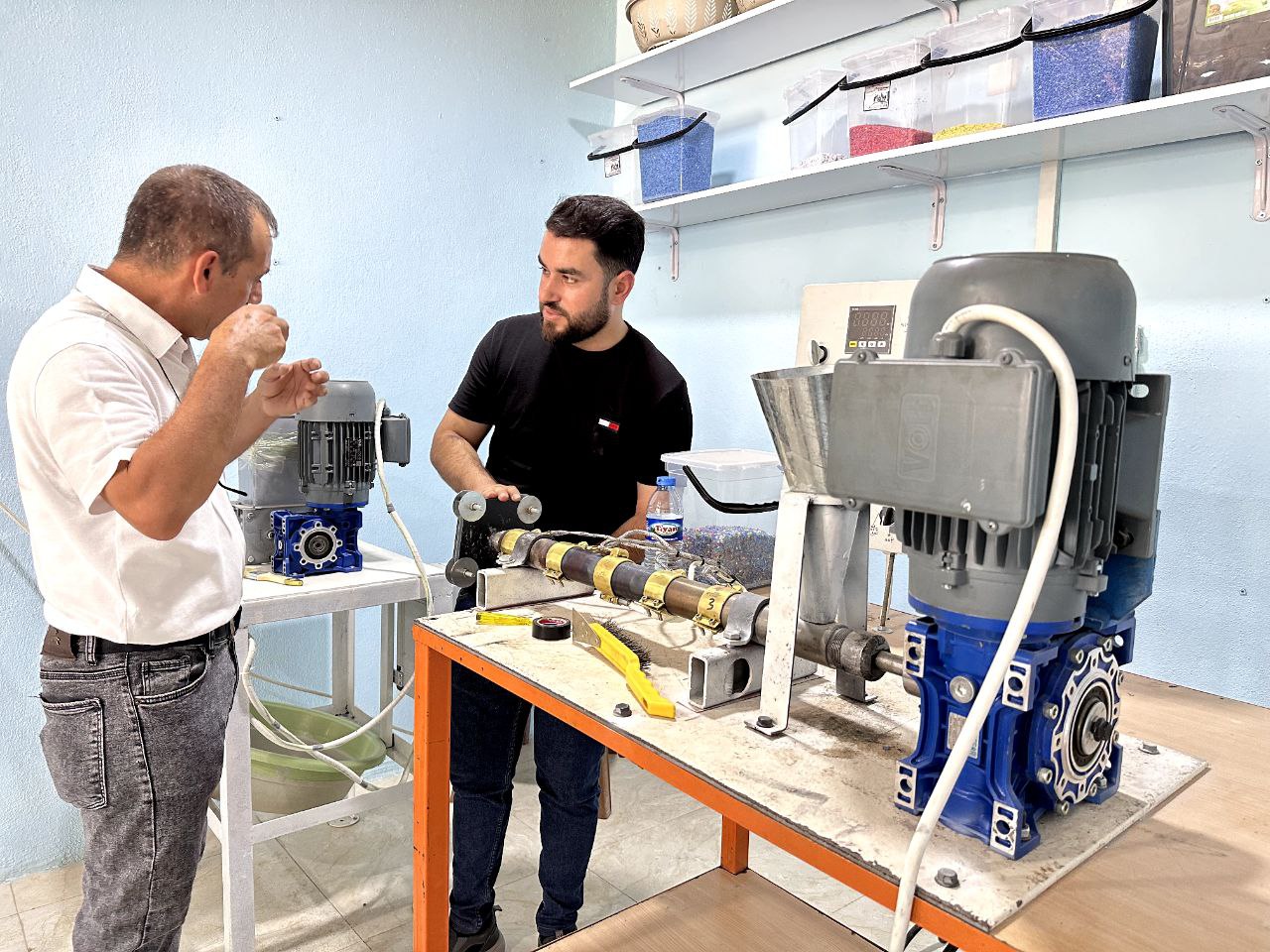A plastic waste recycling project was opened for the first time in Kabartw camp for the internally displaced people IDPs in Dohuk Northern Province. The current goal is to clean the camp environment of plastic and reuse it to make vases, decorative items, chairs and children’s toys.
In the long term, the goals are greater, according to those in charge of the project, including expanding the project to include other areas and thus spreading environmental awareness and informing citizens of the dangers of environmental and groundwater pollution due to throwing plastic waste.
The Dohuk Plastic Recycling Project is implemented in the IDP camp by the Zhinda Organization in cooperation with the Wadi, an Iraqi-German organization, after the success of the project in both Kifri and Halabja.
Chiman Rashid, director of the Zhinda Organization in Dohuk, told KirkukNow, “We started the project in Kabartw 1 and 2 camps, and we seek to expand it later.”

This comes after the Zinda Organization worked over the past years, through six volunteer Yazidi survivors, to educate camp residents about the dangers of environmental pollution through seminars and sessions as the first phase of the project.
The six Yazidi survivors were kidnapped by the extremist militants of the "Islamic State of Iraq and the Levant - ISIS" in August 2014. They were liberated and returned to the Yazidi community in the following years.
“They would meet the displaced families in the camp, distribute plastic waste collection bags to them, and inform them of environmental dangers,” says Rashid.
In addition, Zhinda Organization placed five plastic collection bins in several places in the camp, and in the second phase, it allocated two warehouses to collect plastic waste inside the camp.
Currently, the non-governmental organizations NGOs and the media pay greater attention to environmental issues and climate change.
In September 2022, the Iraqi Ministry of Agriculture revealed that almost three million hectares of land in Iraq are under the threat of desertification due to climate change, noting that the most affected is the province of Dhi Qar, where desertification hit half of agricultural farms and lands.

More than 20,000 IDPs live in Kabartw 1 and 2 camps in the Sumel sub-district of Dohuk, according to statistics from the Directorate of Migration and Displacement in Dohuk - affiliated with the Kurdistan Regional Government KRG.
Weeks ago, the project team received the necessary training and the project was installed.
The project consists of three devices designed to perform different tasks, starting with cutting and grinding plastic and then converting it into other plastic supplies and products.
The project team told KirkukNow that 925 kilograms of plastic were collected in the camps’ warehouses within 40 days.
“In addition to the fact that the project is environmentally friendly, it has provided job opportunities for many,” Rashid says.
“It is true that those who work in the factory receive low wages, but this is just the beginning and the factory’s products may be marketed in the future.”
About 400 million tonnes of plastic waste are produced worldwide annually. According to the United Nations Environment Program (UNEP), one million plastic bottles are purchased every minute; about five trillion plastic bags are used worldwide annually. Overall, half of all plastic products are disposable.

“The first goal is to educate people about the necessity of not throwing away water bottles and other plastic waste,” Rashid said. “We plan to expand the project.”
Only 10% of the plastic waste collected is cooking oil containers, and the rest is water and soft drink bottles, according to the factory supervisor, Ahmed Sanad Kali.
Three girls work here who have received the necessary training and put samples of products on the market, he added.
But it is not clear what the demand for the factory's products will be in the markets.
Najla Zakro (28 years old), a resident of Kabartw camp, said, “Since the awareness campaigns began to urge people not to throw away plastic waste, the camp has become cleaner than it was.”
“The camp residents do not throw away water bottles and collect plastic waste.... The displaced people now realize the extent of harm caused by throwing away plastic.,” she added.
“The displaced and other citizens need such projects and awareness campaigns... Now, I have a desire to work in the field of the environment. I hope the project will expand.”





